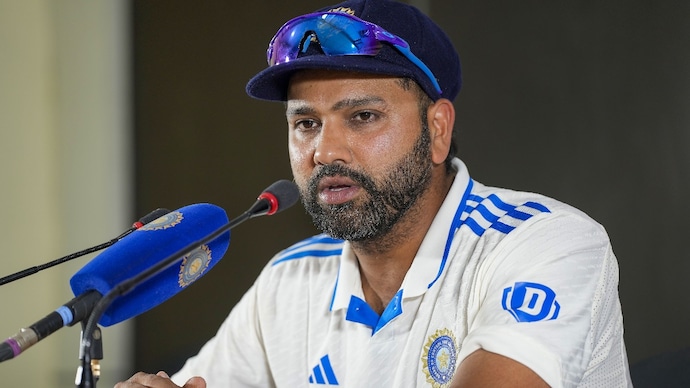Indian cricketer Rohit Sharma’s recent comment about “hunger” in cricket has sparked speculation and debate among fans and pundits alike. In a press conference following a match, Rohit Sharma stated, “The hunger should always be there. You play for a long time, but the hunger should always be there, which drives you to perform consistently.”
While some interpreted this statement as a veiled dig at certain players’ commitment levels, it’s essential to examine the context and intent behind Rohit’s words. Firstly, Rohit Sharma is known for his composed demeanor and diplomatic approach in interviews, rarely resorting to overt criticism or controversy. His statements are typically measured and focused on team performance rather than individual players.

SOURCE:-SKY SPORTS
Moreover, Rohit’s emphasis on “hunger” aligns with a common theme in sports psychology and coaching: the importance of maintaining motivation and drive to excel continuously. For elite athletes like Rohit Sharma, sustaining peak performance requires a relentless pursuit of improvement and success. Therefore, his remark likely aimed to underscore the significance of maintaining a competitive edge and staying motivated, rather than singling out specific players.
SOURCE:- INDIA TODAY
Additionally, Rohit Sharma’s leadership role within the Indian cricket team adds weight to his words. As the vice-captain of the team, he carries the responsibility of setting the tone and expectations for his teammates. Therefore, his comment could be interpreted as a call to collective excellence and a reminder of the high standards expected within the team.
It’s also worth noting that cricket, like many other professional sports, is inherently competitive, and players are under constant scrutiny from fans, media, and selectors. In such an environment, statements made by players, especially senior figures like Rohit Sharma, are often dissected and analyzed for hidden meanings or subtext. However, it’s crucial to avoid reading too much into every word uttered by players and instead focus on the broader context and intent behind their remarks.
Rohit Sharma’s comment about “hunger” in cricket should be viewed in the context of his overall demeanor, leadership role, and the broader principles of sports psychology. While it may have sparked speculation, there is no indication that it was intended as a direct criticism of any particular player. Instead, it should serve as a rallying cry for continuous improvement and maintaining a competitive mindset within the Indian cricket team.
Share your views in the comments

